One Legged King Pigeon Pose: One legged king pigeon is a seated back bending yoga pose suitable for intermediate practitioners. It is also called Eka Pada Rajakapotasana which consists of five words, "Eka", which means one, "Pada", which means leg or foot, "Raja", which means King, "Kapota", which means pigeon and "Asana", which means pose. In this pose, a yogi resembles the position of pigeon so it is called One legged Pigeon Pose in English.
Effective Stretches to do One Legged King Pigeon
One Legged King Pigeon Pose requires shoulder, back, hamstring, quadriceps and hip flexibility. So, practice the following poses to work on these areas;
Butterfly Pose
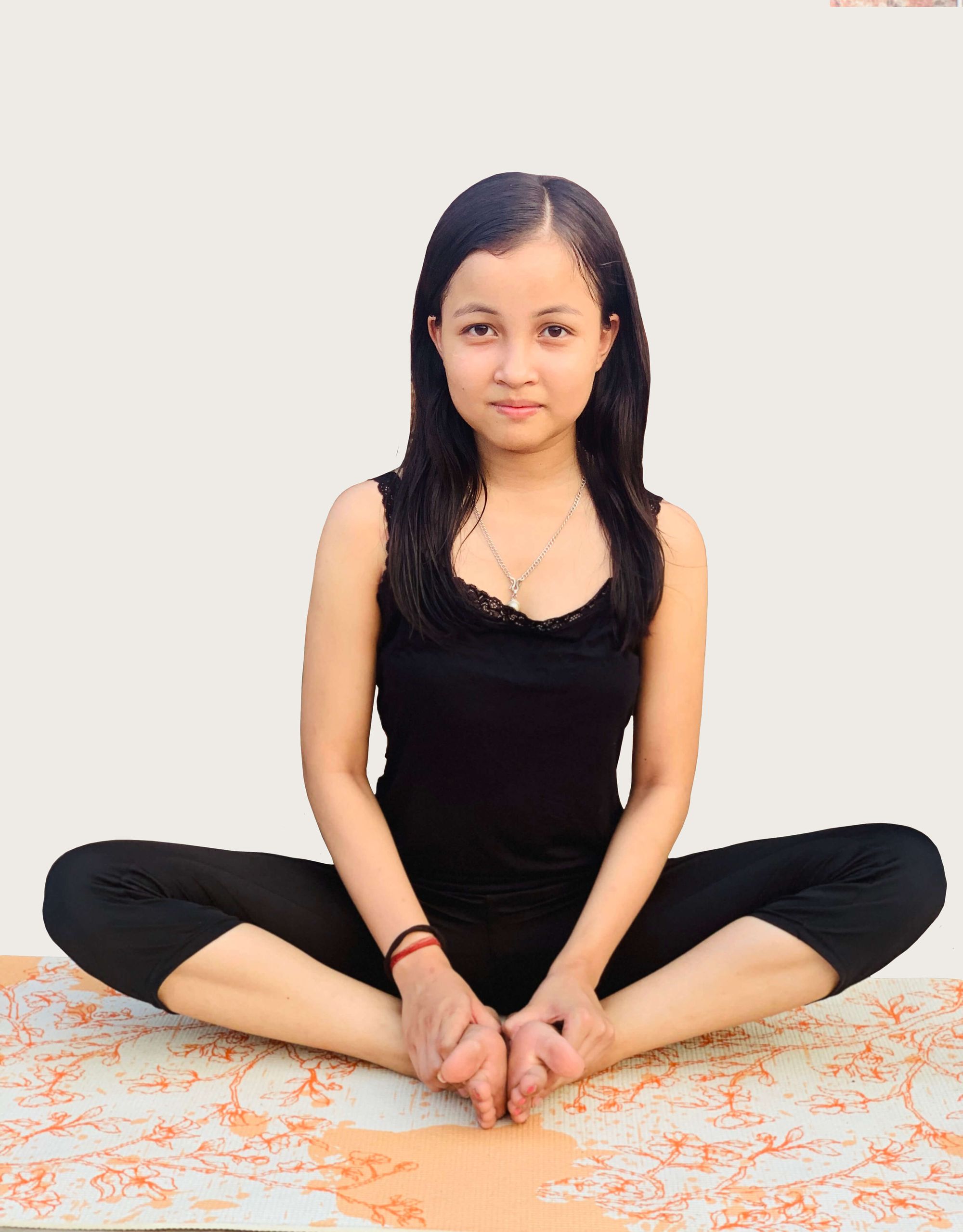
How it helps to do One Legged King Pigeon:
By stretch and opening up the thighs and hips as well.
Tips/Modifications: You can use the wall to support your back and you can hold the ankles if you feel difficulty in holding the toes .
Contraindications: Recent injury or surgery.
Mermaid Pose
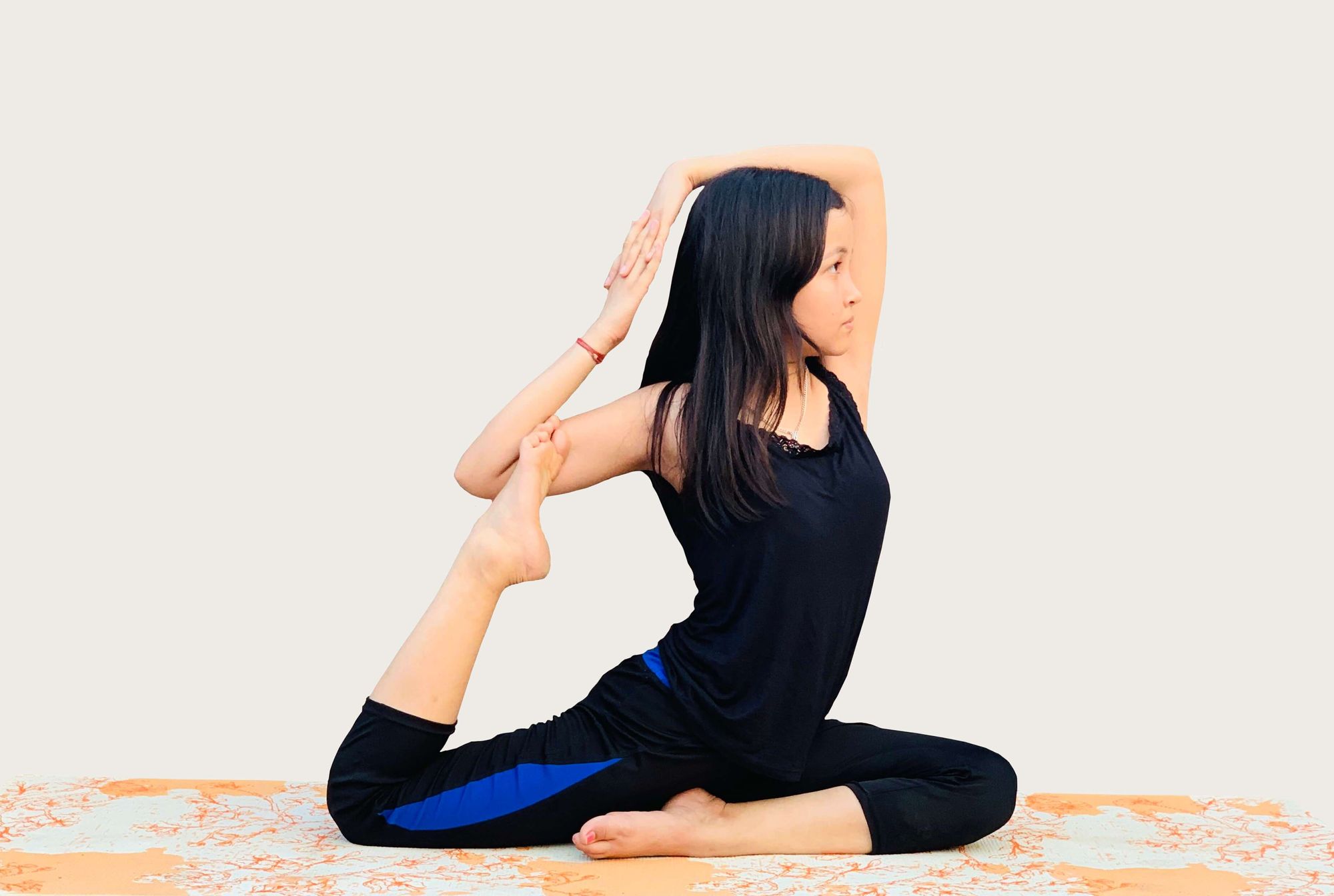
How it helps to do One Legged King Pigeon:
By stretching quadriceps and hip flexors and opening shoulders and chest.
Tips/Modifications: Use blanket as a support to your hips and thighs or try beginner variations of mermaid pose.
Contraindications: Injury of shoulders, hips, knees and ankles, depression, pregnant women and acute asthma.
Pigeon Pose
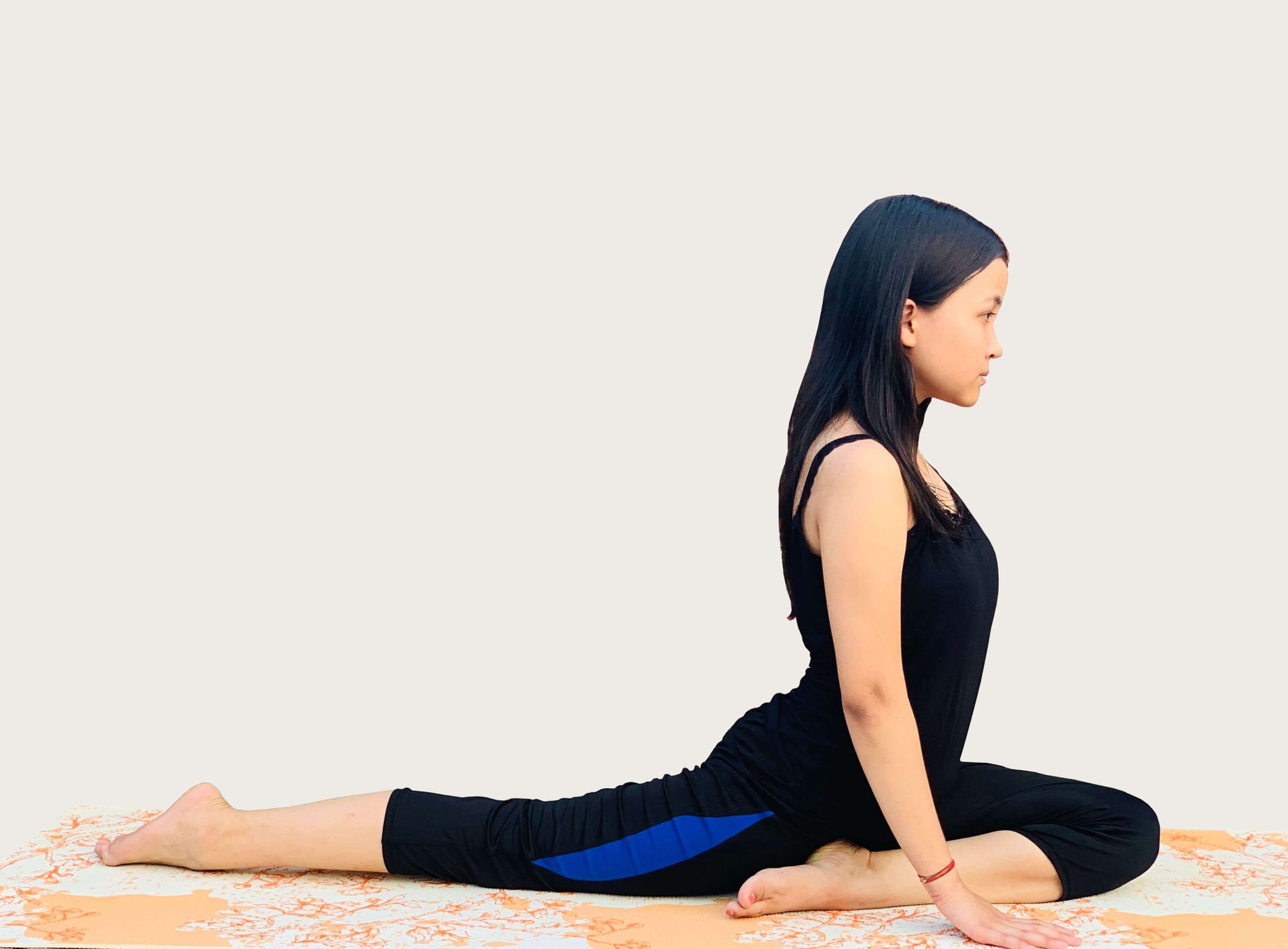
How it helps to do One Legged King Pigeon Pose:
By stretching, lengthening and opening up hip flexors and stretching the thighs.
Tips/Modifications: If your hips aren't ready to sit on the floor, keep a blanket under your sitting bone and if you feel pain in your knees place blanket below the knees.
Contraindications: Injury in knee or hips.
Low Lunge
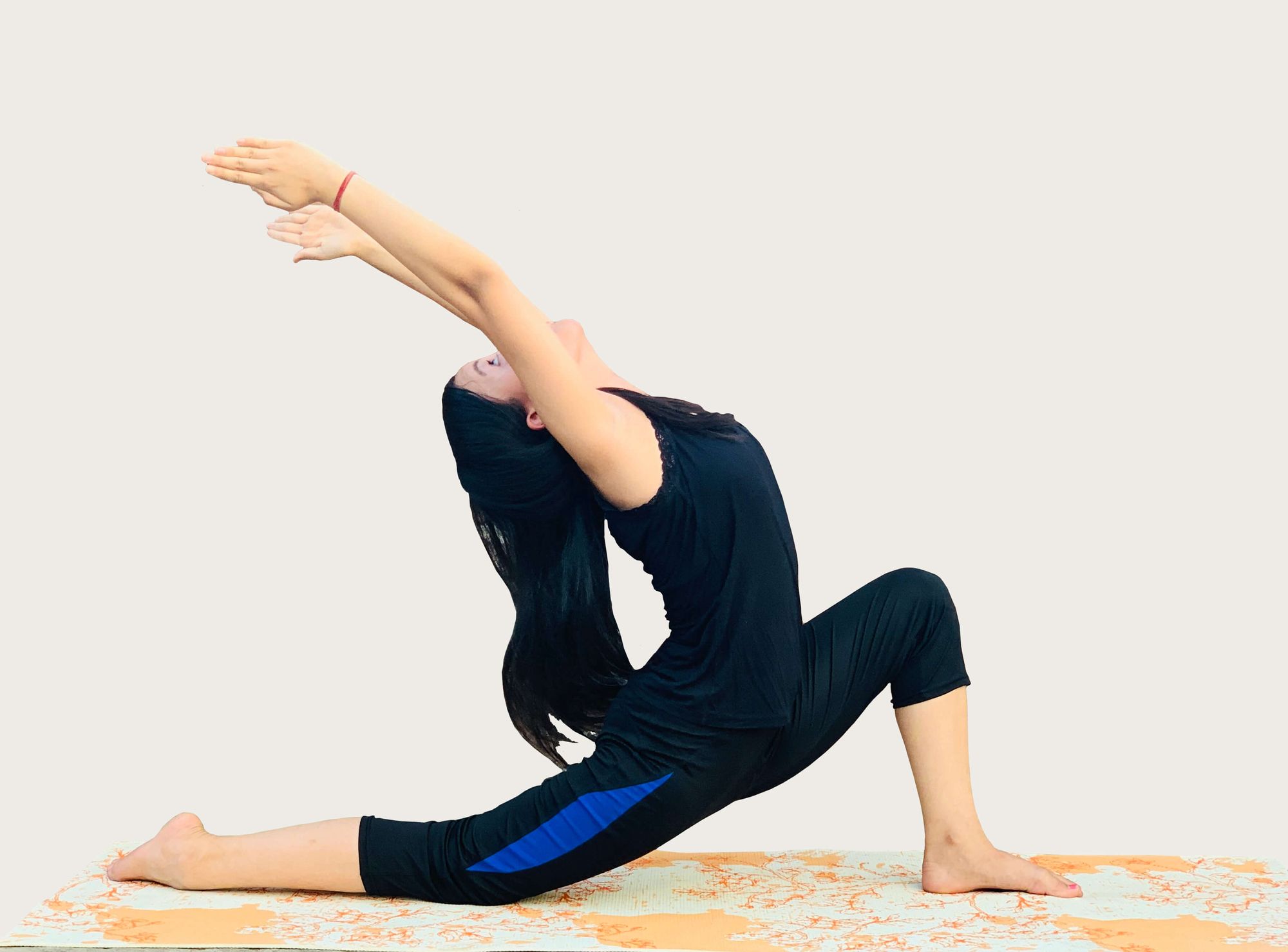
How it helps to do One Legged King Pigeon:
By strengthening and stretching ankles, knees, legs and quadriceps
Tips/Modifications: Press your foot against the wall and do this pose for better balance.
Contraindications: Heart problems, high blood pressure, injury in knees or hips.
Splits
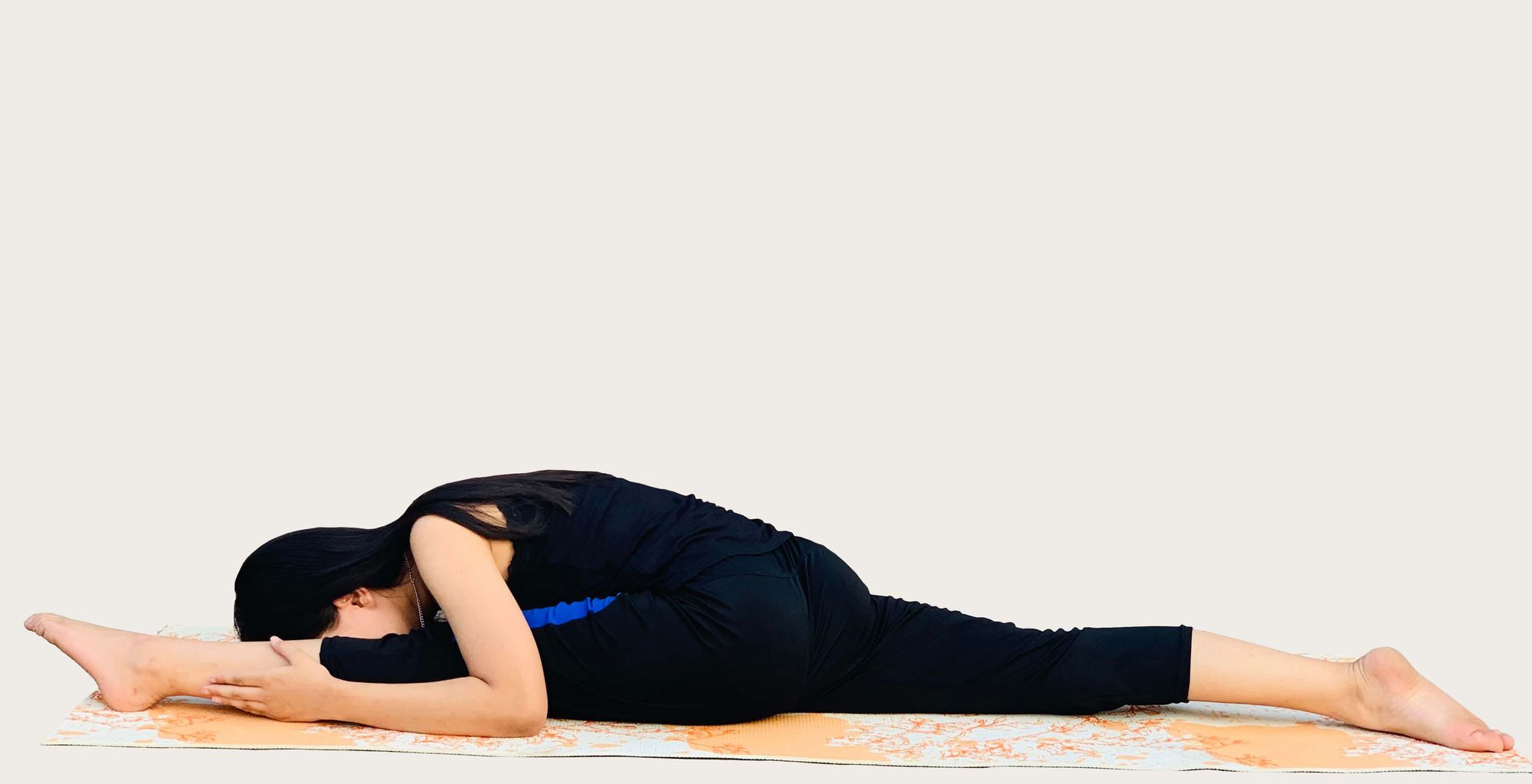
How it helps to do compass pose:
By stretching and strengthening the thighs, hamstrings, hips and back.
Tips/Modifications: Place blocks or pillows under your front hamstring if you are a beginner.
Contraindications: Injury in hamstrings or hips
King Pigeon II
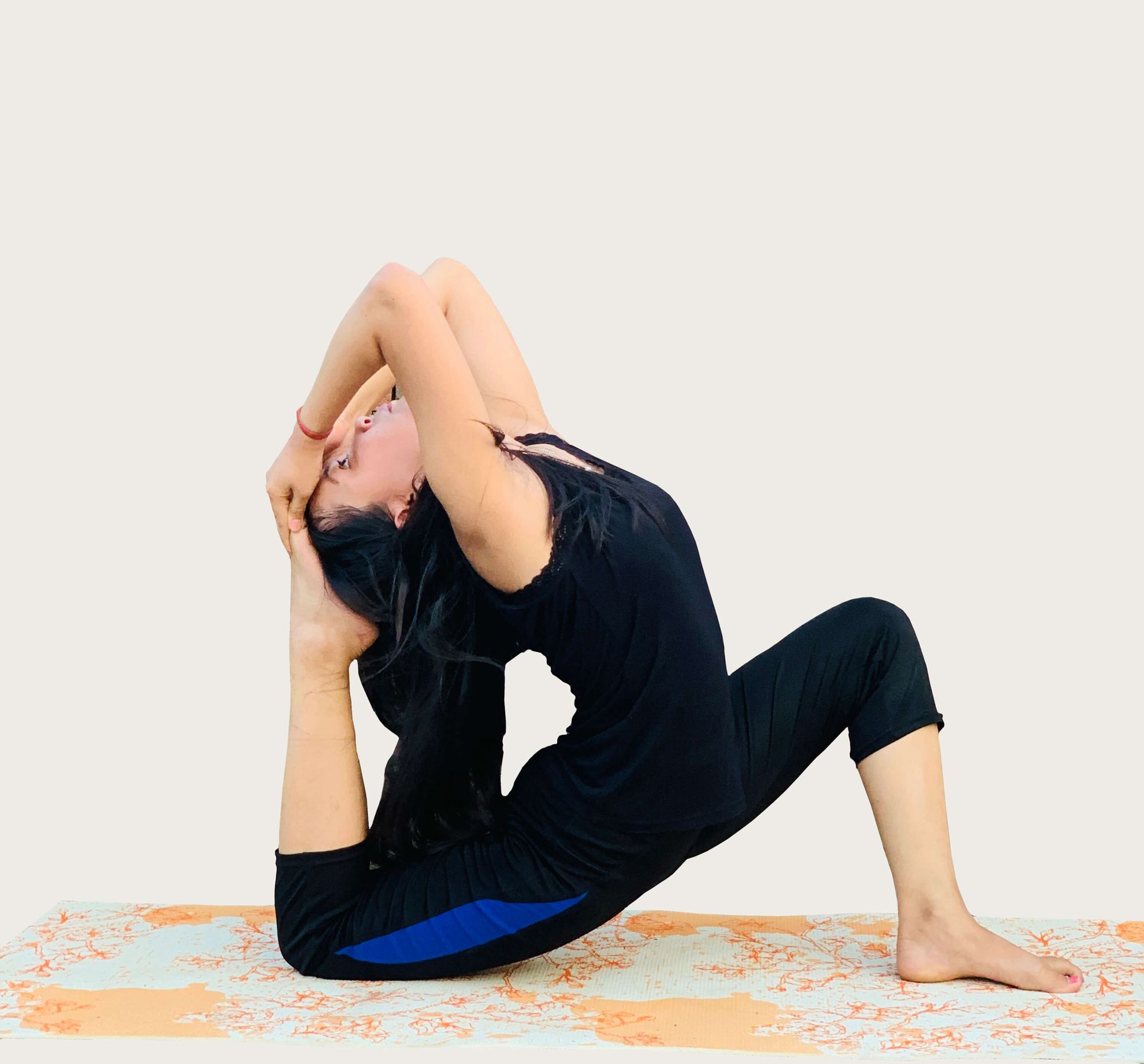
How it helps to do One Legged King Pigeon:
By stretching the hip flexors and opening up the chest, back and shoulders.
Tips/Modifications: Place blanket under the knee for support or use strap to reach the leg. You can decrease the distance between foot and hip to decrease stretch in hips.
Contraindications: Injury of hips, knee, back or shoulders.
Puppy Pose
How it helps to do One Legged King Pigeon Pose:
By stretching spine, shoulders, upper back and arms.
Tips/Modifications: Place blankets below the knee and chest for support or place blankets below the chin if you feel discomfort on your neck.
Contraindications: Injury at knee, hip and lower back and pregnancy.
Cobra Pose
How it helps to do One Legged King Pigeon Pose:
By opening up chest and stretching and strengthening shoulders, arms and spine.
Tips/Modifications: Use wall or place block under your stomach for support. You can also try sphinx pose as an alternative as if you don't feel comfortable in this pose.
Contraindications: Pregnancy, stomach disorder or any kind of back or neck problems.
Steps to do One Legged King Pigeon Pose
Step 1: Start with a pigeon pose with straight back and raise up your hands to lengthen your spine .
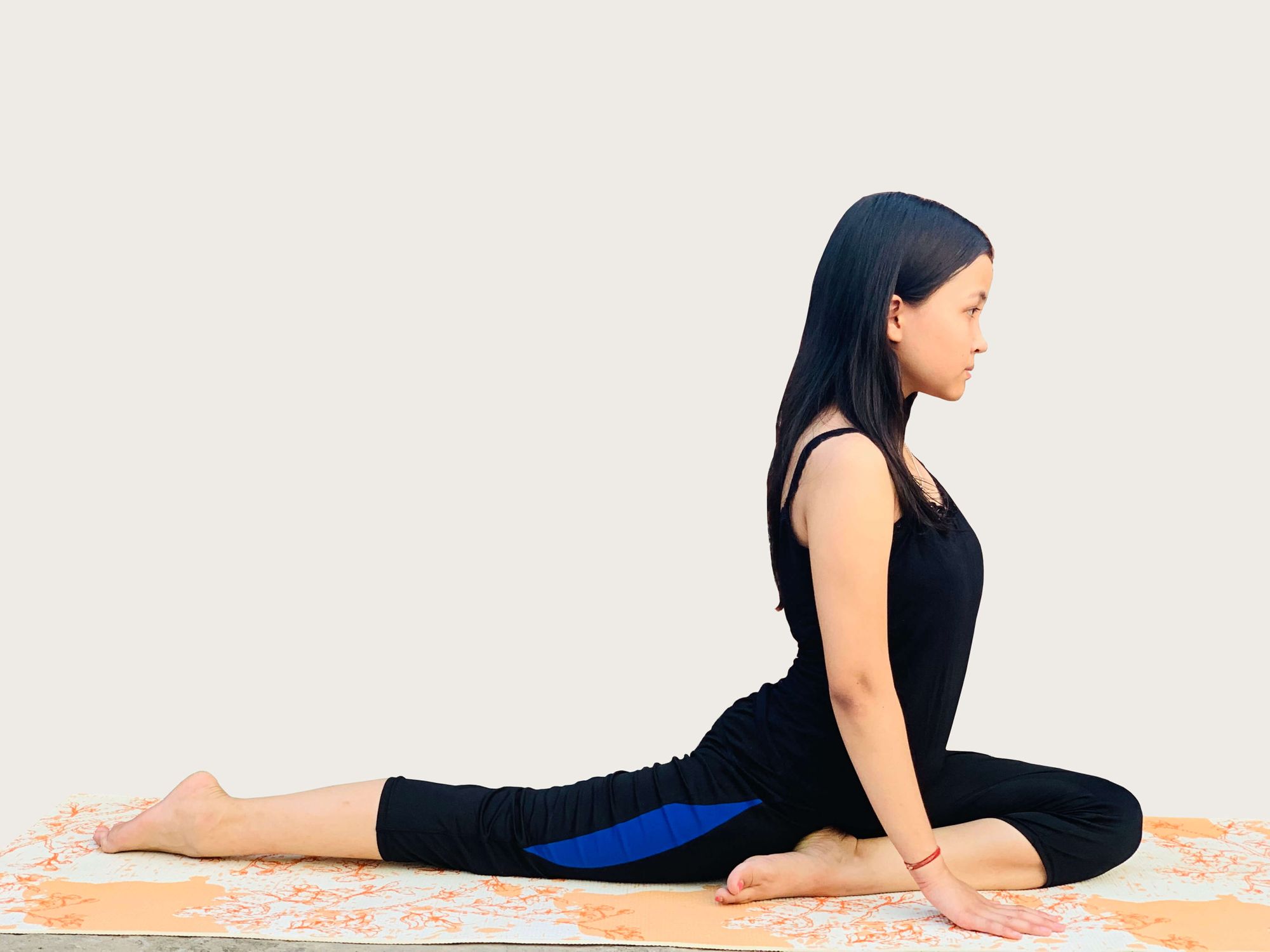
Step 2: Bend your back leg and grab your foot with your palm.
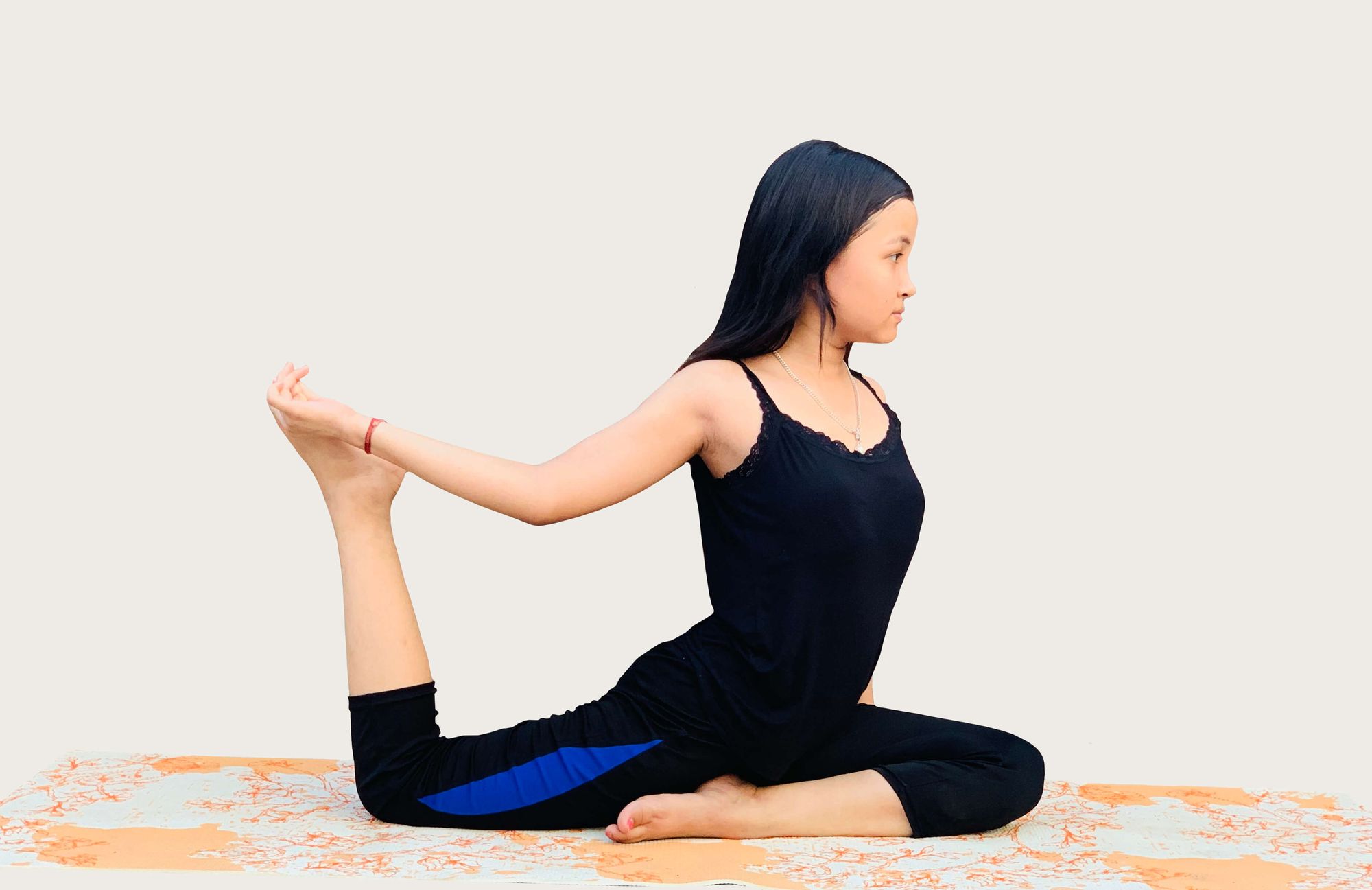
Step 3: Point your foot and externally rotate your arms and bring your elbows up.
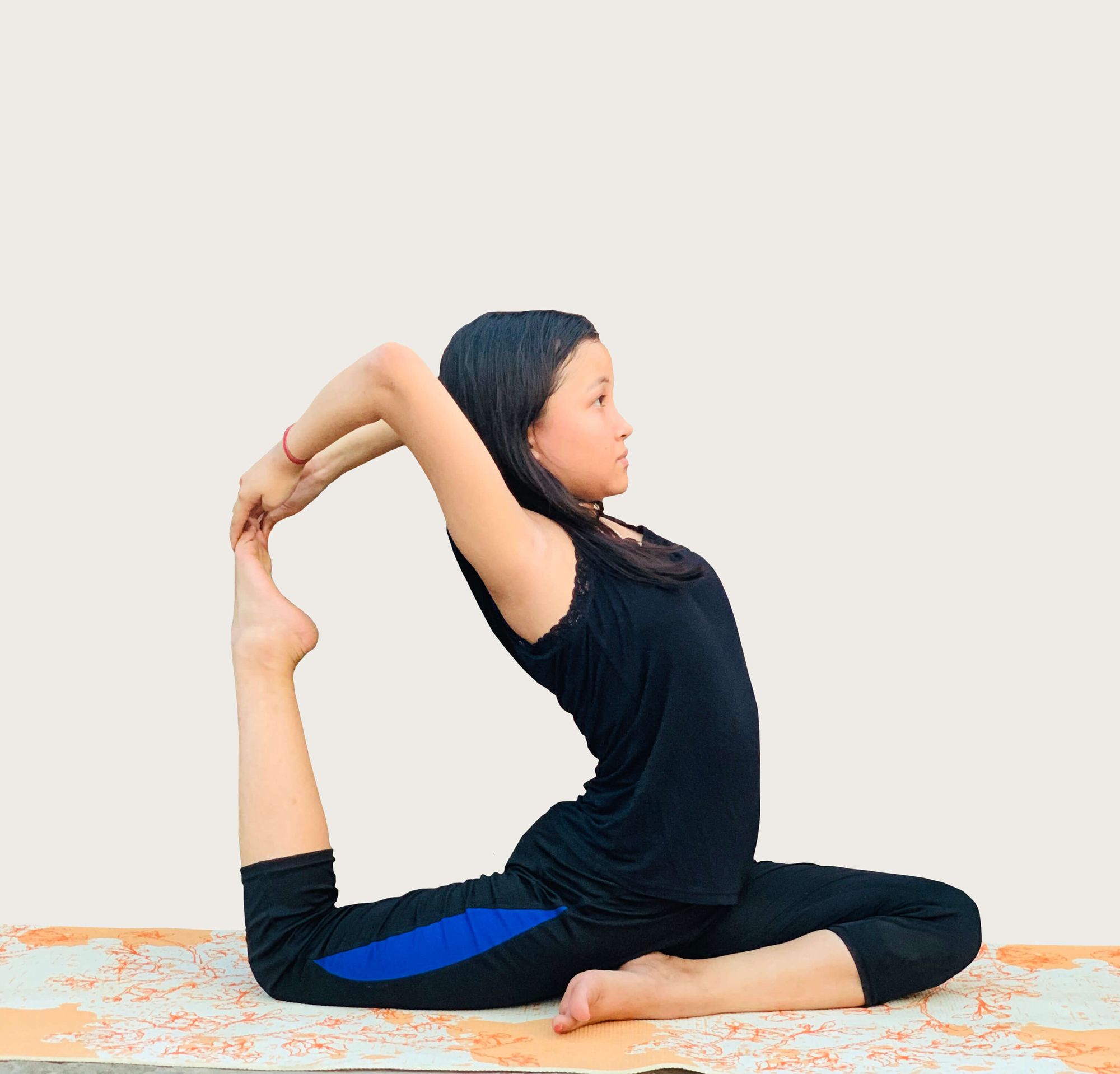
Step 4: Drop your head and touch your foot with your head (only if you are ready, don't try to touch the foot forcefully) and lift your chest up.
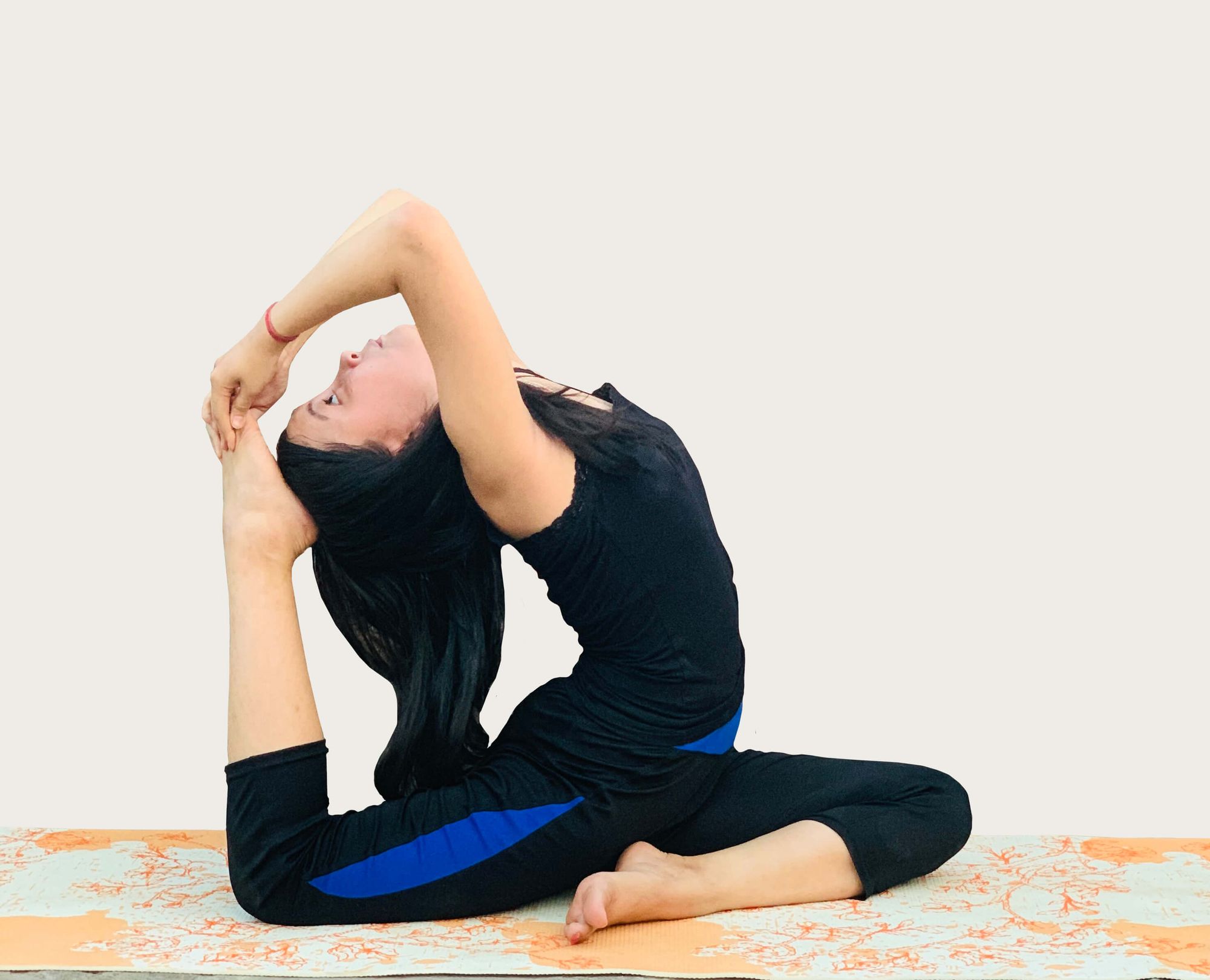
Benefits of One Legged King Pigeon Pose
- Stretches the hip, quadriceps and back.
- Opens up the shoulders and chest.
- Stimulates the abdominal organs.
- Improves the functioning of lungs and heart.
- Improves digestion.
- Removes stress, fatigue and anxiety.
Contraindications:
- Injury at hips, knees, shoulders and back.
- Weak digestion.
- Pregnancy.
- Depression and anxiety.
Tips/Modifications:
- If you have tight hip which doesn't touch the floor, place a blanket under your hip.
- If you can't flip your grip properly try using a strap.
- Don't try to touch the foot with your head in the first attempt, just bend your back as much as you can and slowly you will be able to touch your foot.
- If you are a beginner, hold the leg with one hand and hold the wrist of that hand with your another hand instead of holding the foot with both hands.
- Keep breathing to avoid headache.

